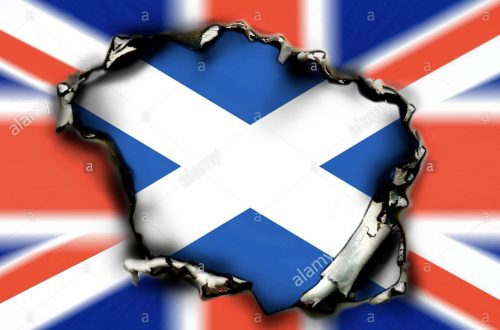Read all of this brilliant post by Angela Harbutt on Liberal Vision:
The YES campaign was eminently winnable. But it ended up being run by readers of the Guardian for readers of the Guardian. Readers of this newspaper are about 1% of the voting electorate – and are also a statistically extreme group. Their views do not chime remotely with mainstream British opinion. There is no purist Guardian editorial proposition that could ever come close to winning a referendum in the UK.
From the outset, the YES campaign was all about the tiny coterie of people who feel strongly about electoral reform. The emphasis was on these people “having fun” and being invited to comedy evenings. In email after email from the YES campaign, the quirky behaviour of this “producer set” was celebrated and the “consumer set” ignored. So, some bunch of local activists who had written the letters Y, E and S in big letters on a beach were hailed as creative geniuses. Others were highlighted for running a particularly successful street stall. From the point of view of any observer, it was all about “them”(the micro-percentage of constitutional reform obsessives) never about “us” (the people). None of this self-indulgent madness won a single vote for the YES side, but it probably lost thousands.
Matthew Elliott’s NO2AV campaign took a totally different path. They realised who their base was and utilised them, but – quite brilliantly – reached out immediately to their key target electorate (essentially traditional Labour voters and supporters.) If Elliott had spent his first weeks in post writing to hard-core Tories about how marvellous and clever they were, he may have lost. He didn’t. He made it his number one aim to build a coalition with Labour and deployed his left-wing allies superbly. Ed Miliband was left looking like a weakened man who couldn’t control the more charismatic and compelling beasts in his party like John Reid. This ability to build a wider coalition from the outset, rather than retreat into the comfort zone of centre-right, free market politics was central to the NO campaign’s success.
In sharp contrast, John Sharkey and Katie Ghose failed to recruit or deploy a single, credible Conservative politician. In the absence of a senior Tory, they at least had Nigel Farage actively offering his assistance from the start of 2011. If there was a single, pro-YES populist politician who could chime perfectly with Mail, Telegraph and Sun readers, the UKIP leader was that man. Ghose and Sharkey should have ripped his arm off as he extended the hand of friendship.
Staggeringly, his offer of help was roundly ignored. Only with ten days to go was Farage prevailed upon by a desperate YES campaign to address some regional meetings. When he did, he was considered by most journalists present to be the star-turn.
…
If there was one thing that nearly tipped me to voting NO (and I didn’t), it was the direct mail leaflet with the postal vote form. From recollection, the front page featured Joanna Lumley, Eddie Izzard, Tony Robinson, Colin Firth, Stephen Fry and other such celebrities. I may as well have been sent a leaflet saying “If you love the Guardian Arts supplement, then vote YES.” It showed a completely pitiful understanding of what most people – as opposed to most electoral reform professionals – care about.
…
The lessons of all of this should be pretty clear. Never again allow a bunch of well-meaning, self-important Guardian readers to run a national campaign in which they talk to themselves and then blame their embarrassing naivety on external forces beyond their control.


